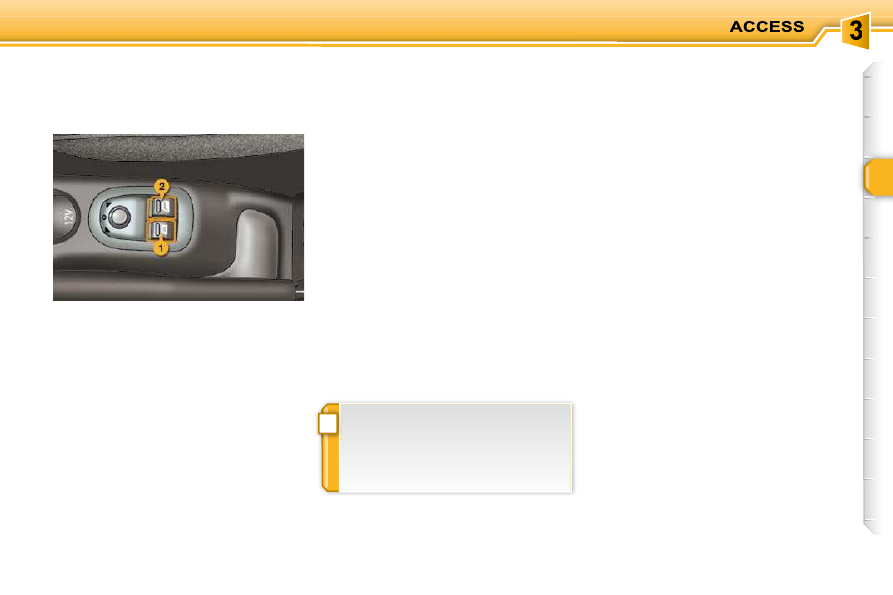Peugeot 206 P Dag (2010.5). Manual - part 4

i
47
WINDOW CONTROLS
System which opens or closes a win-
dow manually or automatically.
Electric windows
Press or pull the switch. The window
stops as soon as the switch is re-
leased.
One-touch electric windows
There are two methods of operation:
-
manual mode
Press or pull the switch gently.
The window stops as soon as the
switch is released.
-
automatic mode
Press or pull the switch fully. The
window opens or closes complete-
ly when the switch is released.
Pressing the switch again stops
the movement of the window.
REAR QUARTER WINDOWS
On the 3-door versions, system for venti-
lation of the rear seats limiting the partial
opening of the window.
Opening
Tilt the lever outwards.
Push the window to open it.
Closing
Pull the lever to close the window.
Tilt the lever fully inwards to secure
the window in the closed position.
1. Driver's electric window switch.
2. Passenger's electric window switch.
The electric window switches re-
main operational for approximately
45 seconds after the ignition is
switched off or until a front door is
opened.